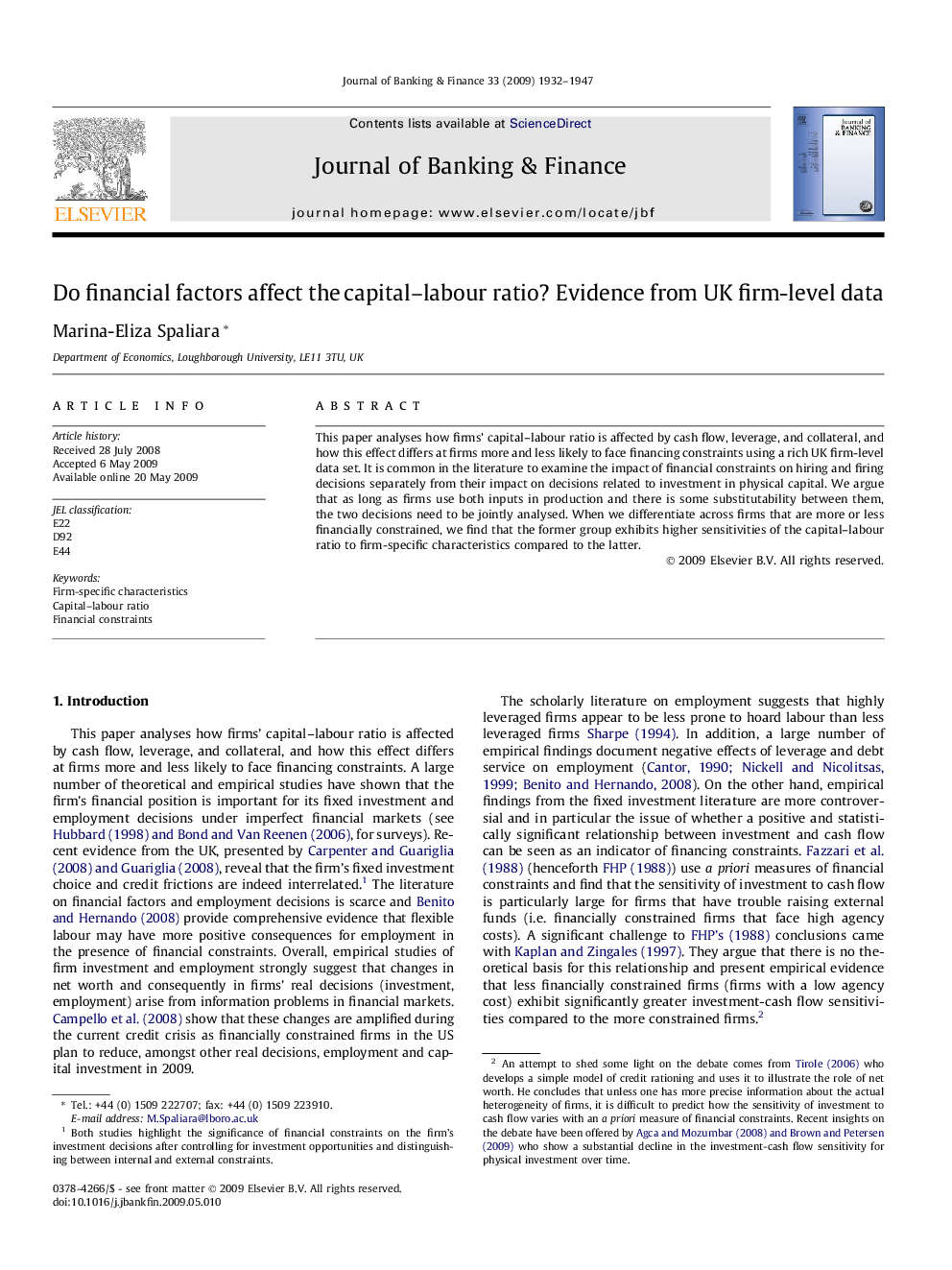| Article ID | Journal | Published Year | Pages | File Type |
|---|---|---|---|---|
| 5090322 | Journal of Banking & Finance | 2009 | 16 Pages |
Abstract
This paper analyses how firms' capital-labour ratio is affected by cash flow, leverage, and collateral, and how this effect differs at firms more and less likely to face financing constraints using a rich UK firm-level data set. It is common in the literature to examine the impact of financial constraints on hiring and firing decisions separately from their impact on decisions related to investment in physical capital. We argue that as long as firms use both inputs in production and there is some substitutability between them, the two decisions need to be jointly analysed. When we differentiate across firms that are more or less financially constrained, we find that the former group exhibits higher sensitivities of the capital-labour ratio to firm-specific characteristics compared to the latter.
Related Topics
Social Sciences and Humanities
Economics, Econometrics and Finance
Economics and Econometrics
Authors
Marina-Eliza Spaliara,
